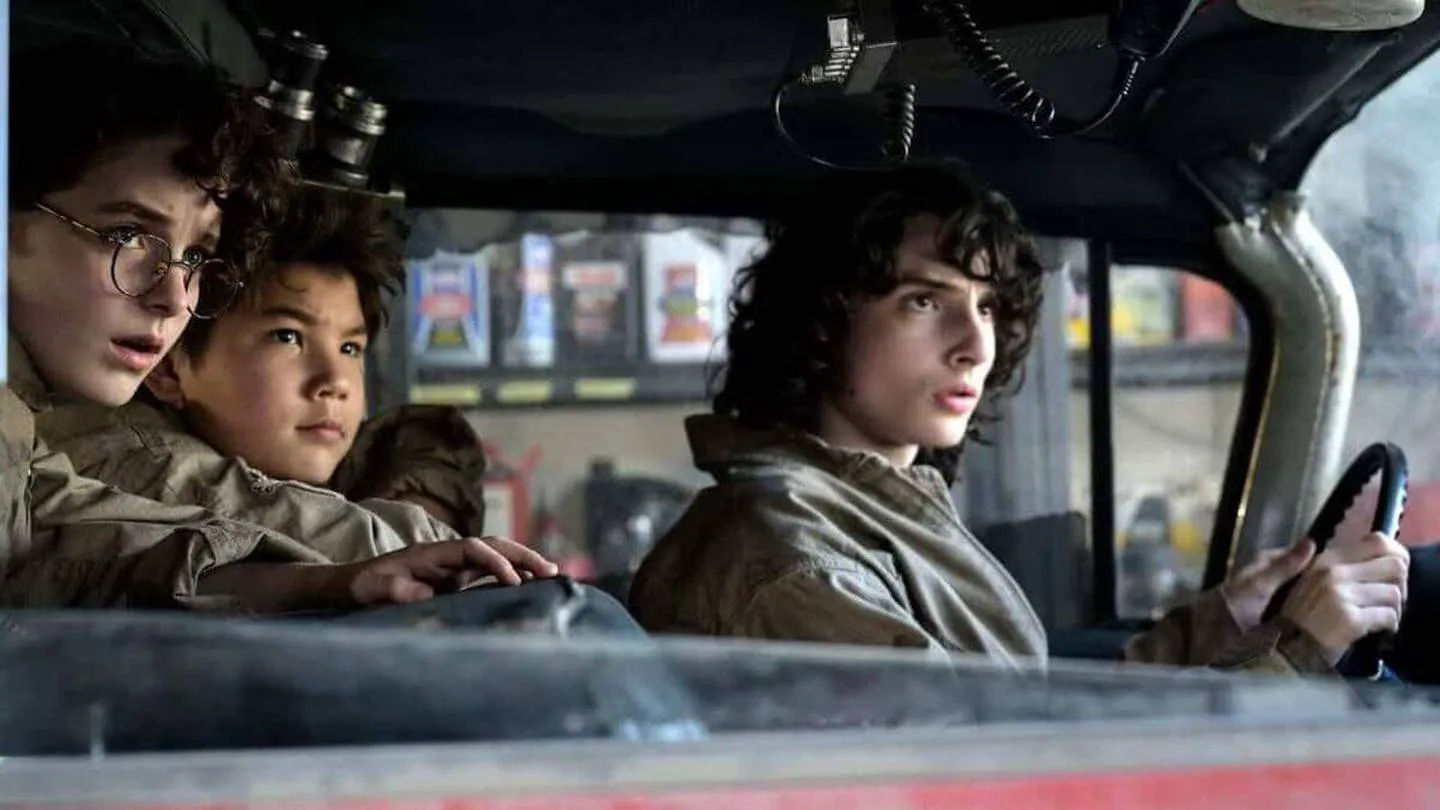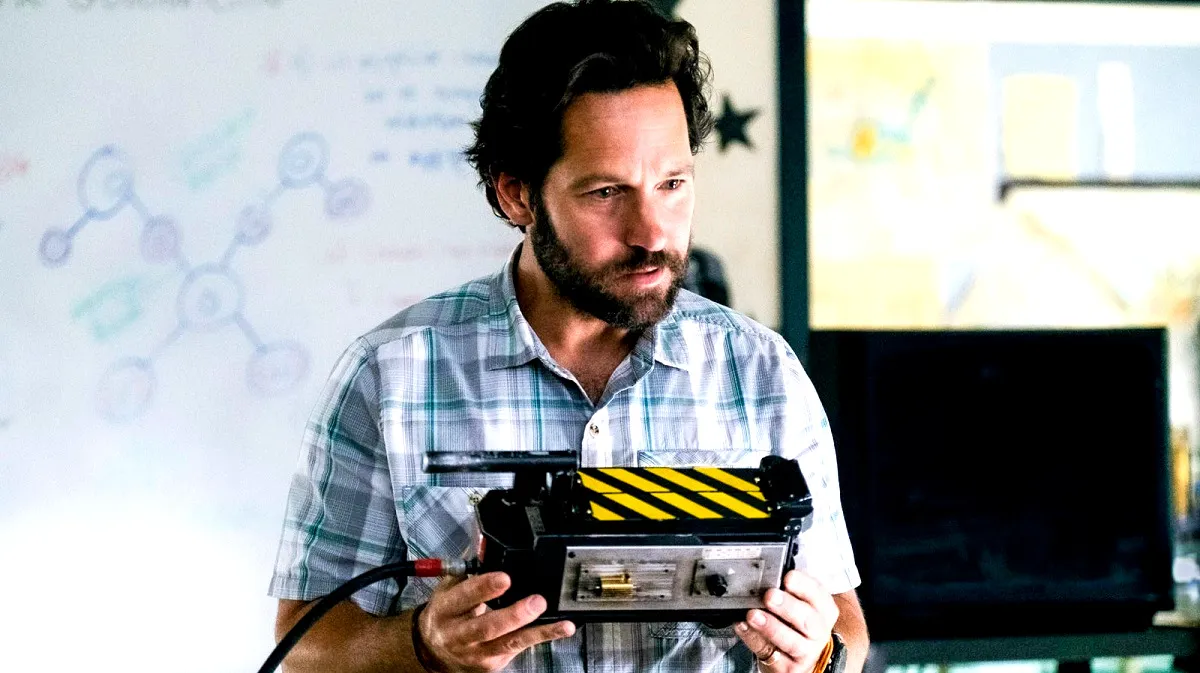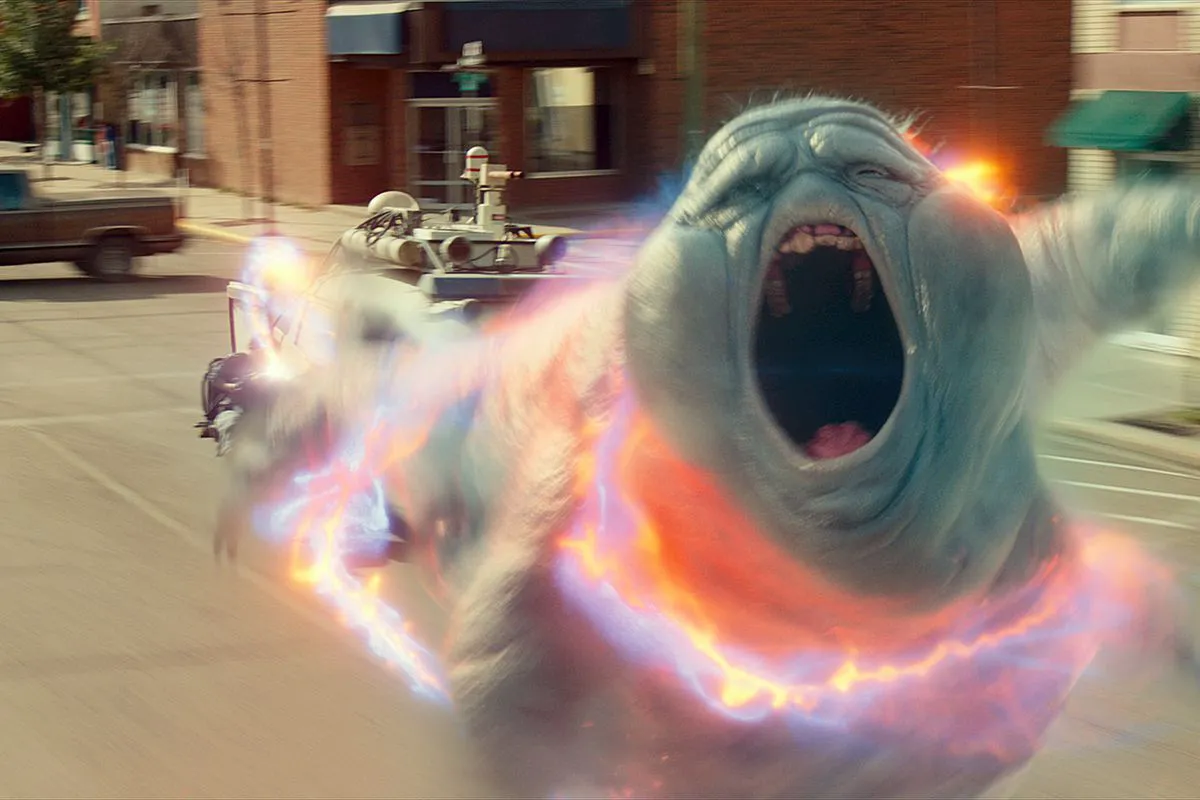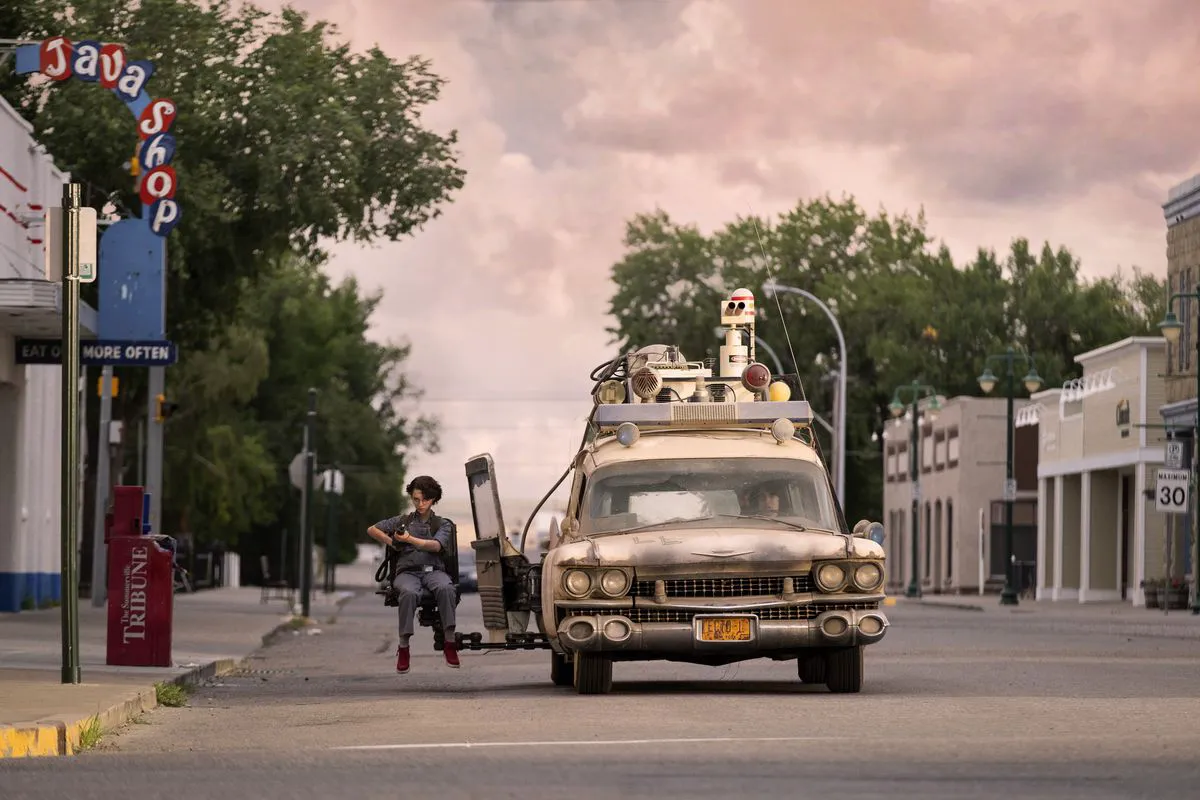Ghostbusters: Legacy - A Nostalgic Trip Back to the 80s
Summerfield, Oklahoma, is a town that feels like a blend of Gravity Falls and Stephen King’s Derry. It’s the kind of place where you might find a quirky grandfather with a basement full of secrets, but some mysteries are best left buried, lest they unleash a new wave of nightmares. Kelly (Carrie Coon) inherits just that kind of legacy from her estranged father: a dilapidated farmhouse, a crumbling barn, and a house straight out of an Edgar Allan Poe novel. Moving to this forgotten corner of the world with her son Trevor (Finn Wolfhard) and daughter Phoebe (Mckenna Grace), she soon discovers that strange things are afoot – the dead don’t stay dead, and earthquakes occur with unsettling regularity.

McKenna Grace as Phoebe in “Ghostbusters: Afterlife”
A Legacy Reborn
The “Ghostbusters” franchise has expanded far beyond its initial success. We’ve seen sequels, animated series, books, and even a female-led reboot that most would prefer to forget. This time, however, feels different, largely because Jason Reitman is at the helm. Not only is he the director of heartfelt films like “Juno” and “Tully” (written by Diablo Cody), but he’s also the son of Ivan Reitman, the director of the original “Ghostbusters” films. This lineage, subtly hinted at in the title “Legacy,” becomes the film’s driving force, its tone, and its very method of creation – and that’s a good thing.

Paul Rudd as Mr. Grooberson in “Ghostbusters: Afterlife”
A Love Letter to the Original
Reboots, remakes, re-imaginings, and franchise revivals have become so commonplace that debating their necessity feels pointless. “Legacy” understands its place in this landscape of nostalgia. It doesn’t try to be anything more than a love letter – not just to the original film, but to an entire era. In its spirit and execution, “Legacy” evokes the charm of films like “Casper,” “Jumanji,” and “The Goonies,” the kind of family-friendly adventures that defined the childhoods of millennials and the director himself.

Scene from “Ghostbusters: Afterlife”
Respecting the Source Material
Reitman Jr. treats the source material with reverence, avoiding the pitfalls of endless fan service and blatant repetition. The original quartet only appears in the final scene (spoiler alert – but it won’t ruin the experience!), and the most overt references are tucked away after the credits. The film leans heavily on practical effects, giving the familiar gadgets a tangible feel. Those iconic traps blink with their familiar red and green lights, chess pieces move on their own, and a secret passage lurks beneath an old leather armchair. The narrative justification for revisiting this universe is almost secondary: ghosts are among us, merely dormant before the next apocalypse.

McKenna Grace as Phoebe in “Ghostbusters: Afterlife”
A Family Affair
Unsurprisingly, the central conflict revolves around fathers and children. While Kelly struggles to forgive her scientist father (none other than Dr. Spengler), her daughter Phoebe feels an increasingly strong connection to her grandfather, who occasionally communicates from beyond with a flickering lamp. Phoebe, not Trevor (played by Finn Wolfhard, who seems born for the 80s), becomes the protagonist – an awkward, geeky girl armed with scientific formulas and quirky jokes about Pascal and hamsters. McKenna Grace’s undeniable charm, combined with the film’s sense of adventure and summer vacation freedom, ensures that this reboot feels not only welcome but genuinely endearing, both to longtime fans and newcomers alike. A giant, gluttonous ghost devours fire hydrants, classmates avoid the dilapidated farmhouse, and Paul Rudd, as the hilarious summer school teacher Mr. Grooberson, pops in “Cujo” on VHS. Reitman has created a world you want to inhabit, a world that feels distinctly different from the slime-soaked New York of the 80s.
Ultimately, your enjoyment of “Ghostbusters: Legacy” will depend on your expectations. The less you anticipate, the more likely you are to find it a delightful escape from bad weather and November blues. It’s a light, mischievous, and playful film, childish, naive, and sentimental in just the right measure. The final dedication, “For Harold” (a tribute to Harold Ramis, who played Spengler and passed away in 2014), will bring a tear to the eye of even the most hardened skeptic.